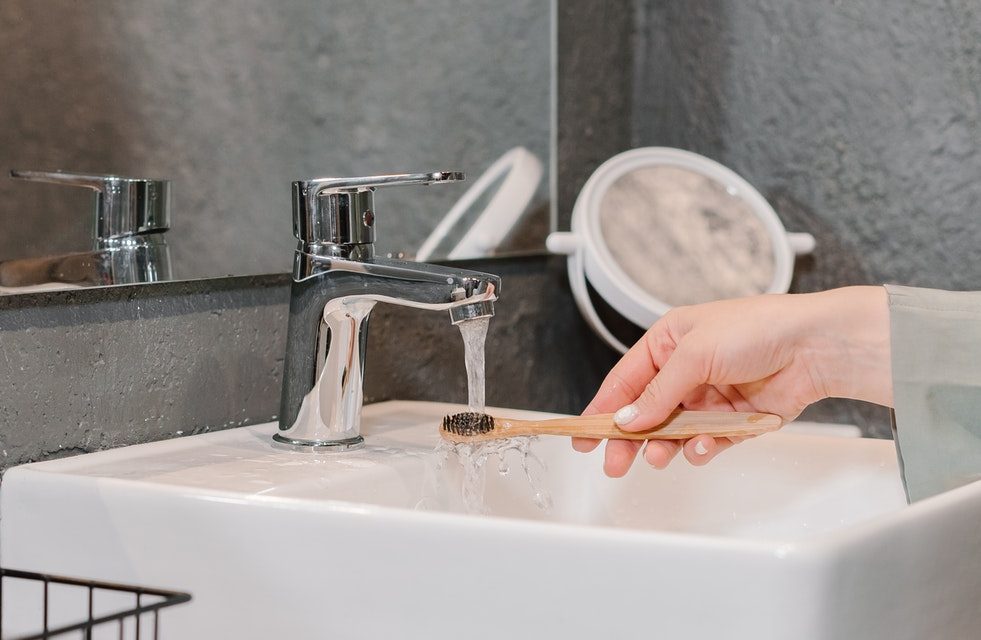Maintaining good oral hygiene is an extremely important part of life. Failure to maintain good oral hygiene can lead to tooth decay and gum disease, affecting how we eat, sleep, talk, and even socialise. While tooth decay and gum disease are treatable, it is always better to prevent the problem, rather than having to go through a painful procedure to treat it. Many things can affect oral hygiene.
Often, people who are suffering from depression will neglect their oral health. However, this is through no fault of their own. Mental health can play a huge role in poor oral health, which can lead to people feeling guilty or shameful about dealing with the problems that have occurred. Again, prevention is always better than treatment, so here are our five things you can do to improve your oral hygiene.
Brush Twice A Day
Brushing twice a day is one of the most effective ways to improve your oral health and decrease the risk of tooth decay and gum disease. Food debris will often get stuck between our teeth and gums when we eat. If we do not get rid of the food debris, it can turn to plaque, leading to tooth decay. Brushing twice a day gives you the chance to remove any of that excess food debris leftover, and it can help to keep your gums healthy too. This can help maximise your oral hygiene routine.
When it comes to the type of toothbrushes, most dentists would recommend electric as the powerful rotating head can get a deeper clean. However, electric toothbrushes can be expensive and so, therefore, are not accessible to everyone. A standard toothbrush will do the job fine, but just pay extra attention when brushing. If you are prone to bleeding when you brush, the bristles on your toothbrush are too rough, so opt for a soft bristle brush instead. In terms of toothpaste, try and use a toothpaste that contains fluoride, as it helps prevent tooth decay by making the teeth stronger against plaque and bacteria.
Floss
Flossing and brushing go hand in hand. While brushing twice a day is great for removing plaque build-up, your toothbrush alone cannot necessarily reach deep in between your teeth, which is where flossing comes in. Flossing should be part of your oral hygiene routine as it can give you a deeper clean and can decrease the risk of tooth decay and gum disease.
Any floss will do the job properly; however, it is recommended to use unwaxed floss over waxed floss. Although waxed floss is stronger, there are chemicals used on the floss that may not be preferable for everyone. Unwaxed floss is thinner and can glide more easily in between your teeth, plus it is free from chemicals. Ultimately, any flossing is better than no flossing, so do not stress too much over what floss you should use. Try a few out and see which one works best for you.
Consider Orthodontic Treatment
Another thing you could do to improve your oral hygiene is get orthodontic treatment. Orthodontic treatment is the process of gently aligning the teeth, so they sit straight in the mouth, instead of overlapping or crowding. When teeth overlap or crowd together, it can be difficult to clean each tooth effectively as you cannot reach the tooth’s full surface. Even if you are flossing, it can be impossible to get in between the teeth and properly clean them if the teeth are that crowded together. This can lead to a heavy build-up of plaque that you are unable to get rid of.
Teeth straightening may also be an option if you feel insecure or are unhappy with the way your teeth look. when it comes to what treatments are available, you have a few options to choose from. One of the most well-known orthodontic treatments is fixed metal braces, however, these can often be painful, and you are restricted with what food you can eat. A great alternative to metal braces is clear aligners.
Clear aligners work the same in that they put gentle pressure on the teeth to align them, but they are practically invisible, and you have no food restrictions as you just remove the aligners to eat. If you are considering orthodontic treatment, you should always choose a reputable place, so you know you are in good hands. Straight My Teeth is a good place to look as they offer services that allow you to straighten your teeth from the comfort of your home, so you do not have the hassle of regular orthodontic treatments.
See Your Dentist Regularly
Visiting your dentists regularly is a great way to improve your oral hygiene. Brushing and flossing is a great way to prevent tooth decay, but sometimes there may be underlying issues that we cannot spot. Your dentist, however, is trained to notice problems when they are at an early stage, so it is very important that you have regular dental appointments. Additionally, attending regularly means that treatment can be issued as soon as the problem has been noticed, preventing the problem from worsening.
For example, you may think that a small chip in the tooth is nothing to worry about. If it isn’t causing you pain or isn’t affecting your daily life, then you may not think of it as a big issue. However, a small chip in a tooth can quickly turn into a small hole. Once the hole is present, food will start to get trapped in the tooth, which will cause start to cause the tooth to rot. A small hole or chip can be fixed with a simple filling, but once the tooth rotates, it gets progressively worse and can lead to abscesses and gum disease.
When this happens, the only option for the tooth is an extraction, where the whole tooth is removed. While this does solve the problem, having missing teeth can greatly impact your jaw and affect your self-image. Going to the dentist regularly can prevent any dental issues getting worse.
Reduce Sugar Intake
Reducing your sugar intake is another way you can improve your oral hygiene. Sugar is known to cause severe tooth decay, and if your diet is high in sugar, you are likely to end up with dental problems further down the line. Sugar addiction is a very real thing, and it is something that is prevalent in the UK. Studies show that in the UK, the addiction to sugar is leading to 170 operations a day to remove rotten teeth.
This doesn’t mean you need to cut out all sugar from your diet. However, reducing the amount you consume daily can go a long way in improving your overall oral health. If you enjoy sugary drinks, try to reduce them to one a day or save your treats for the weekend. When you consume sugar, the sugar gets stuck to your teeth, so it could be a good idea to rinse your mouth out after consuming sugary food or drinks. Additionally, drinking sugary drinks with a straw can be useful as it prevents the sugar from having direct contact with the teeth.


















